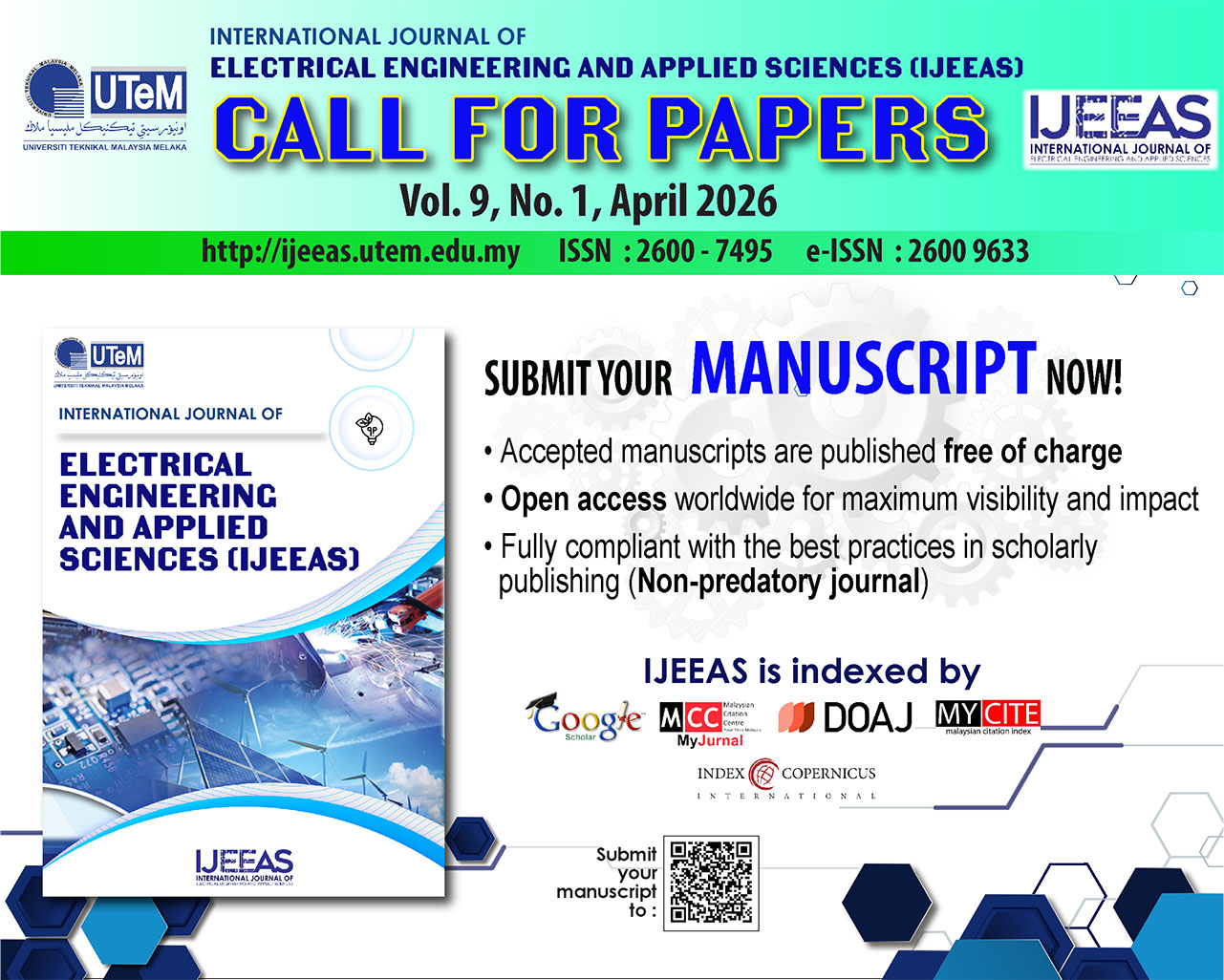Throughput Performance of an Adaptive Power Splitting Relaying Protocol for Cooperative NOMA Networks
Abstract
The combination of Cooperative Non-Orthogonal Multiple Access (NOMA) and Simultaneous Wireless Information and Power Transfer (SWIPT) enhances the reception reliability and communication quality of users in wireless networks. However, conventional Fixed Power Splitting (FPS) protocol limits system performance due to its inability to adapts to fluctuating channel conditions. This strategy leads to decoding errors and reduces the rate of data transmission. This paper presents an Adaptive Power Splitting (APS) NOMA protocol for two-user SWIPT-based cooperative NOMA network. The adaptive strategy enables the near user to dynamically adjust its power splitting ratio based on real-time channel conditions to optimize Energy Harvesting (EH) and Information Decoding (ID). A system model was developed by incorporating a channel-based power splitter into the near user’s receiver architecture. The mathematical expressions for the Outage Probability (OP) and throughput for both users are derived over Rayleigh fading channels to evaluate the throughput performance of the proposed system. Performance analysis is conducted through MATLAB-based simulations, evaluating the effects of system parameters on the throughput performance of the considered system. The results reveal that at Signal-to-Noise-Ratio (SNR) of 25dB, APS NOMA system outperforms FPS NOMA and Orthogonal Multiple Access (OMA) by 13.33% and 29.66%, respectively, at near user, and by 4.74% and 30.38%, respectively, at the far user, validating its effectiveness for energy-constrained wireless networks and future IoT systems.
Downloads
Downloads
Published
How to Cite
Issue
Section
License
Authors who publish with this journal agree to the following terms:
- Authors retain copyright and grant the journal right of first publication with the work simultaneously licensed under a Creative Commons Attribution License that allows others to share the work with an acknowledgement of the work's authorship and initial publication in this journal.
- Authors are able to enter into separate, additional contractual arrangements for the non-exclusive distribution of the journal's published version of the work (e.g., post it to an institutional repository or publish it in a book), with an acknowledgement of its initial publication in this journal.
- Authors are permitted and encouraged to post their work online (e.g., in institutional repositories or on their website) prior to and during the submission process, as it can lead to productive exchanges, as well as earlier and greater citation of published work (See The Effect of Open Access).







